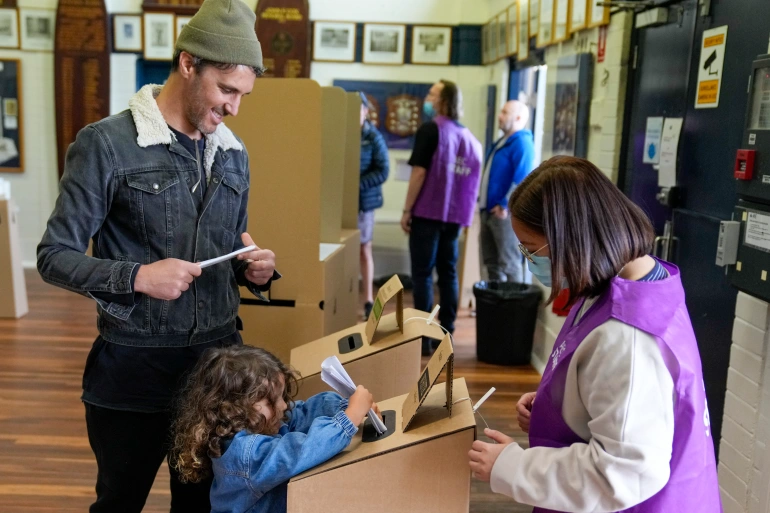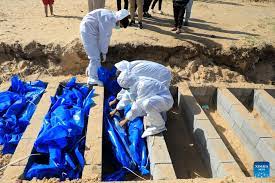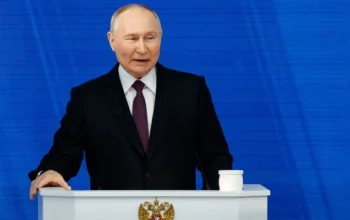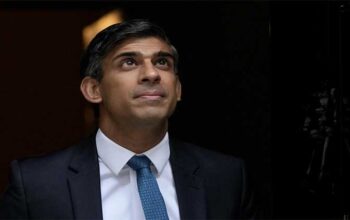SYDNEY: Anthony Albanese’s opposition Labor party has won Australia’s election, but with votes still being counted, it remained to be seen if it would achieve a parliamentary majority.
Prime Minister Scott Morrison conceded defeat late on Saturday even though vote counting was incomplete.“Tonight I have spoken to the leader of the opposition and the incoming Prime Minister Anthony Albanese, and I’ve congratulated him on his election victory this evening,” Morrison said at a televised speech in Sydney.
He added he would stand down as leader of the Liberal party.
The Australian Broadcasting Corporation (ABC) earlier predicted Morrison’s incumbent Liberal-National coalition cannot win enough seats to form a majority government.
Labor had so far secured 72 seats to the coalition’s 51, ABC projections indicated. Parties need to win at least 76 seats to secure an outright majority.It is still unclear if Labor can win outright or will instead secure a higher number of seats in a hung parliament.
The results have been notable for a strong performance by independent candidates, many of whom ran in traditional Liberal seats and campaigned on the issue of climate change.
If Labor cannot secure an outright victory then Australia will have a hung parliament for the first time since 2010. Prior to that, the last hung parliament occurred in 1940.
Labor has led opinion polls throughout the six-week campaign, but the gap has narrowed with Morrison’s coalition making up ground ahead of election day.’
Morrison aimed to become the first prime minister to win two elections in a row since John Howard in 2004. Labor party clinched its first electoral win since 2007.
Voting is compulsory in Australia and just over 17.2 million people have enrolled to vote, according to the Australian Electoral Commission (AEC).Record numbers of voters cast their ballots at early voting centres or via postal votes, and more than half of the total votes had been cast by Friday evening, according to the commission.
Polls closed across the country at 6pm (08:00 GMT) in Sydney and 10:00 GMT on the west coast. The final results could be known as soon as Saturday evening.
Narrowing polls and the emergence of independent candidates have raised the possibility of a hung parliament.
Anything less than 76 seats in the lower house means the winner will need to negotiate with smaller parties and independents in order to try and form a minority government.
Australia uses a preferential voting system rather than the simple majority employed in countries like the United Kingdom and the United States, and voters rank their candidate choices on the ballot paper.
A man in a wetsuit and surf board joins the queue to vote at a Bondi Beach polling station
A strong showing for independents could lead to a hung parliament, amid dissatisfaction over the main parties’ positions on climate change [Mark Baker/AP Photo]
The campaign has focused heavily on the rising cost of living, with Australia experiencing its highest inflation rate in 21 years, and the central bank raising interest rates for the first time since 2010.Morrison argued his handling of the economy was a major reason for voters to back him again, pointing to record low unemployment rates.
He also proposed a scheme to allow young people early access to their retirement funds to help them buy their first property.
Concerned for future
Labor, meanwhile, attacked the government’s economic record, highlighting how wages are not growing quickly enough to meet the increased cost of living.
“As a recent grandfather I am concerned about the future generations and the economic policies of the major parties aren’t addressing that,” Brian Silver, a teacher voting in Sydney told Al Jazeera.



